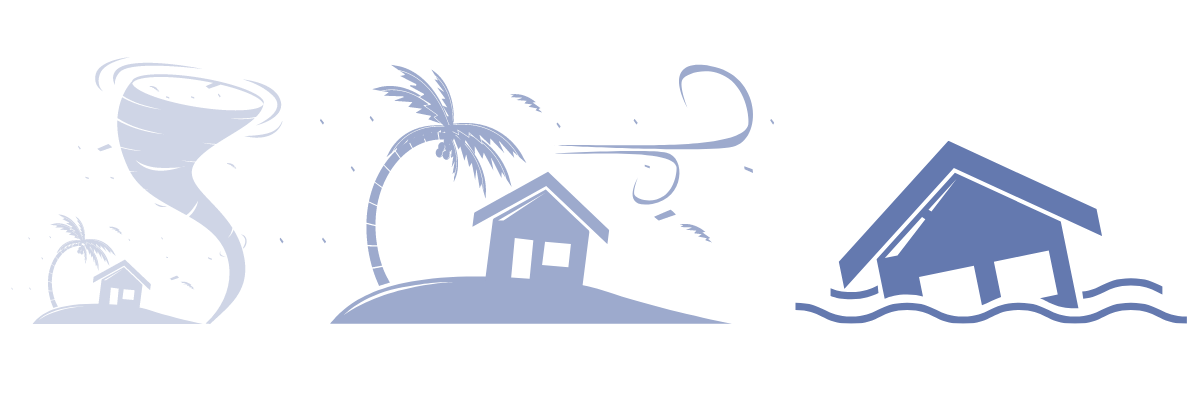Natural disasters and payroll: What you need to know
Hurricane Laura wreaked havoc last week when it made landfall as a powerful Category 4 hurricane. And since hurricane season is still at its peak, now it a good time to remind everyone about natural disasters and payroll.

Current natural disaster announcements from the IRS
The IRS has begun to issue disaster announcements for Laura’s victims in a few days. If you’re one of them, go to the IRS’ disaster recovery webpage for details.
The IRS has issued a couple of disaster announcements in the last several days.
Victims of the Aug. 10 Iowa derecho wind event and victims of the California wildfires that began Aug. 14 have until Dec. 15, 2020, to file individual and business tax returns and make tax payments, including third-quarter estimated tax payments. Employers’ third-quarter Forms 941, which is normally due on Oct. 31, 2020, is also extended to Dec. 15.
In addition, penalties on payroll tax deposits due after Aug. 10 and before Aug. 25 will be abated as long as the deposits are made by Aug. 25, 2020, for employers located in Iowa. For California employers, penalties on payroll tax deposits due after Aug. 14 and before Aug. 31 will be abated as long as the deposits are made by Aug. 31, 2020.
Disaster tax relief is usually county-specific. In Iowa, the relief applies to Linn County. In California, it applies to Lake, Monterey, Napa, San Mateo, Santa Cruz, Solano, Sonoma and Yolo counties. Check back: The IRS adds localities all the time to its disaster recovery webpage.
Wages and hours
The Fair Labor Standards Act doesn’t disappear just because you’ve been devastated by a natural disaster. Here are the basic rules:
- Nonexempt employees can’t volunteer for their employers; you have to pay them for their disaster recovery work.
- Nonexempts should keep track of their working time any way they can. Worst case scenario: Accept their handwritten time records.
- Exempts can fill in for their nonexempt subordinates without jeopardizing their status.
- If you pay nonexempts premium pay of at least 1.5 times their regular rate of pay, you can credit those payments against your obligation to pay overtime.
You help me, I help you
Many states have mutual assistance laws under which employees from out-of-state employers who come into a state to assist with disaster recovery won’t be taxable in the disaster state. There are several catches:
- The event must be declared a disaster by the president.
- The time employees can remain in a state tax-free is usually limited to 60 days after the disaster is declared over.
- You may have to notify the secretary of state or the state tax department of your presence.
- You won’t be liable for income or corporate taxes attributable to employees’ work in a state, but you’ll be required to pay other taxes, like sales and hotel occupancy taxes.
Calling up the National Guard
A disaster can be dire enough to warrant calling in the National Guard or Reserves to assist with recovery. Those employees have rights under the Uniformed Services Employment and Reemployment Rights Act.
We addressed these issues back in March in regard to the pandemic. The issues remain basically the same.
Family and medical leave during a natural disaster
For employees who are already taking regular FMLA leave, you can’t count any days you’re closed toward their leave entitlement if you’re closed for a full week.
Employees wouldn’t be entitled to pandemic paid FMLA leave because a natural disaster closed their kids’ schools (assuming those schools were open). Employees are only entitled to paid FMLA leave if their kids’ schools are closed due to covid.



